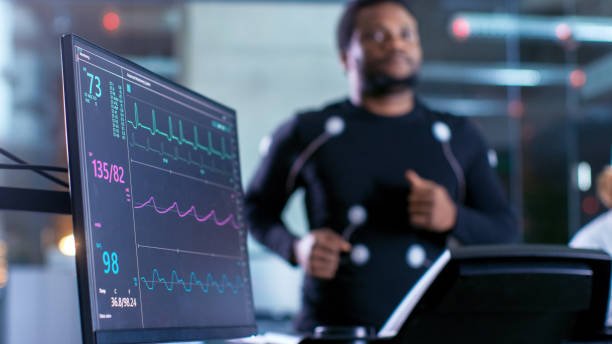
Preparing For Your Stress Test
Cardiac exercise stress test:
A painless, non-invasive (no needles or cutting skin) test. It measures electrical changes to your heart during stress exercise. The test takes 30 minutes. The result of this test helps your doctor diagnose coronary artery disease.
-
• Do not eat a heavy meal within 6 hours of the test.
• No caffeine for 24 hours prior to the test. This includes anything with caffeine such as coffee and tea (regular and decaf), sodas with caffeine, or chocolate You may have a light lunch the day of the test. You may drink water at any time.
• If this test was ordered by a physician other than your cardiologist in our office, you or your doctor are required to provide your prescription to us.
• Do not use lotions or gels or moisturizers on the day of the test. You may shower on the day of the test, but please don't use anything that will prevent the electrodes from adhering to your skin.
• Do not smoke. If you are a smoker, please do not smoke the day of the test.
• Check with your physician about which of your regular medications to take or stop before the test.
-
• Your skin is prepared with a scrubbing material.
• Electrodes are placed on your chest to monitor your heart rhythm and a blood pressure cuff is wrapped around your arm.
• You will walk on a treadmill for as long as you can. The speed and the incline of the treadmill increase slowly. As you exercise, walking may get more difficult and your heart rate and blood pressure rise.
• Tell the nurse or medical assistant if you have any chest pain or feel tired, lightheaded or nauseated.
• After you reach your exercise limit and for a short time after, your heart rhythm and blood pressure are monitored.
-
• You are able to drive yourself home and resume normal activities such as work and school.
• You can eat and drink normally and go back to taking your regular medications.
Nuclear stress test:
A diagnostic test used to evaluate blood flow to the heart. A small amount of radioactive isotope is injected into a vein. A special camera detects the radiation released by the tracer to produce computer images of the heart. This test is usually performed on a treadmill, however it is possible to perform it completely at rest using a chemical. A nuclear stress test lasts anywhere between 2 ½ to 3 hours.
-
• Do not eat or drink anything for 6 hours before the test except for water. This is a fasting test and not fasting will impact the test.
• No caffeine for 24 hours prior to the test. This includes anything with caffeine such as coffee and tea (regular and decaf), sodas with caffeine, or chocolate.
• Bring a high fat snack. The technician will allow you to eat part way through the test. You may bring a snack such as a bagel with cream cheese, buttered roll, or peanut butter & jelly sandwich.
• If this test was ordered by a physician other than your cardiologist in our office, you or your doctor are required to provide your prescription to us.
• Do not use lotions or gels or moisturizers on the day of the test. You may shower on the day of the test, but please don't use anything that will prevent the electrodes from adhering to your skin.
• Do not smoke. If you are a smoker, please do not smoke the day of the test.
• If you are pregnant or breastfeeding, please inform us prior to your test so that your doctor can make a decision on whether to proceed with the test..
• Check with your physician about which of your regular medications to take or stop before the test.
• Wear loose fitting, comfortable clothing and sneakers or running shoes. You will undress from the waist up and wear a short gown for privacy.
-
A nuclear medicine technologist will place an IV into a vein in your arm or hand and inject a small amount of the isotope. About 20 minutes after the injection, you will then have the first set of pictures taken under the camera. These are the "resting" images.
Next the technician will place electrodes on your chest to monitor your heart through an electrocardiogram (EKG). At this time, you will start to walk on a treadmill and at regular intervals, the difficulty of the exercise will increase until the test is completed, generally after 6 to 12 minutes.
At this time a second dose of isotope will be injected through your IV. About 30 minutes after exercising you will then have your second set of gamma camera images. Those having a chemical stress test will be given a medication to simulate exercise.
Tell the nurse or medical assistant if you have any chest pain or feel tired, lightheaded or nauseated.
After you the test is completed your heart rhythm and blood pressure are monitored.
-
You are able to drive yourself home and resume normal activities such as work and school.
You can eat and drink normally and go back to taking your regular medications.
-
Upon scheduling the test, a message will be sent to our authorization team to get it approved. You may receive notices from the insurance company at this time that our practice has started an authorization.
All tests must be approved before they are performed, so in the event of a denial, you will be notified prior to your scheduled appointment. If your test is denied by your insurance company, our staff will then contact your doctor for advice regarding the next step.
